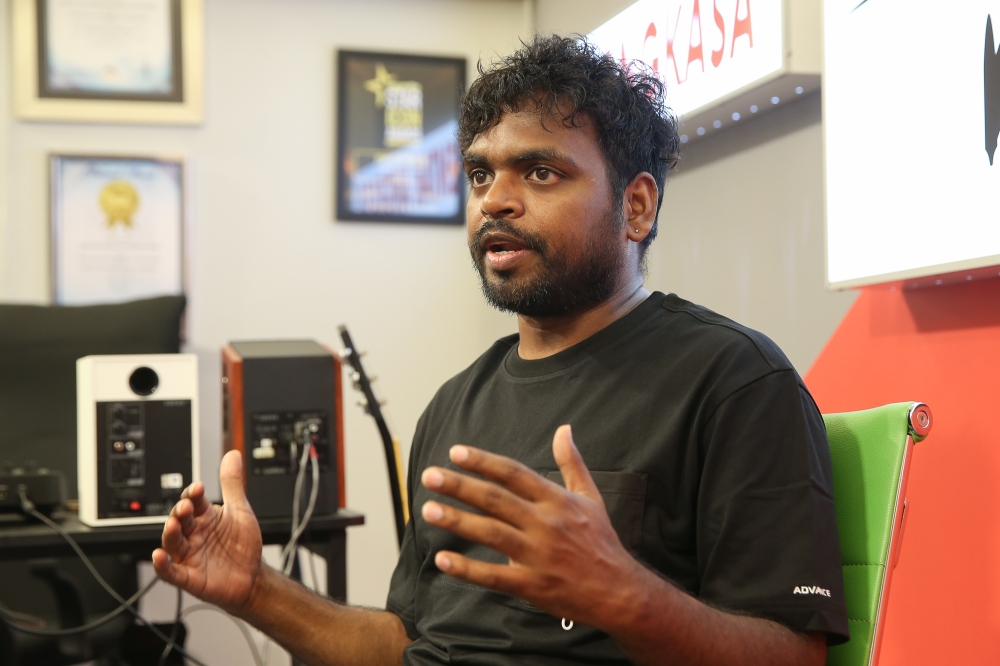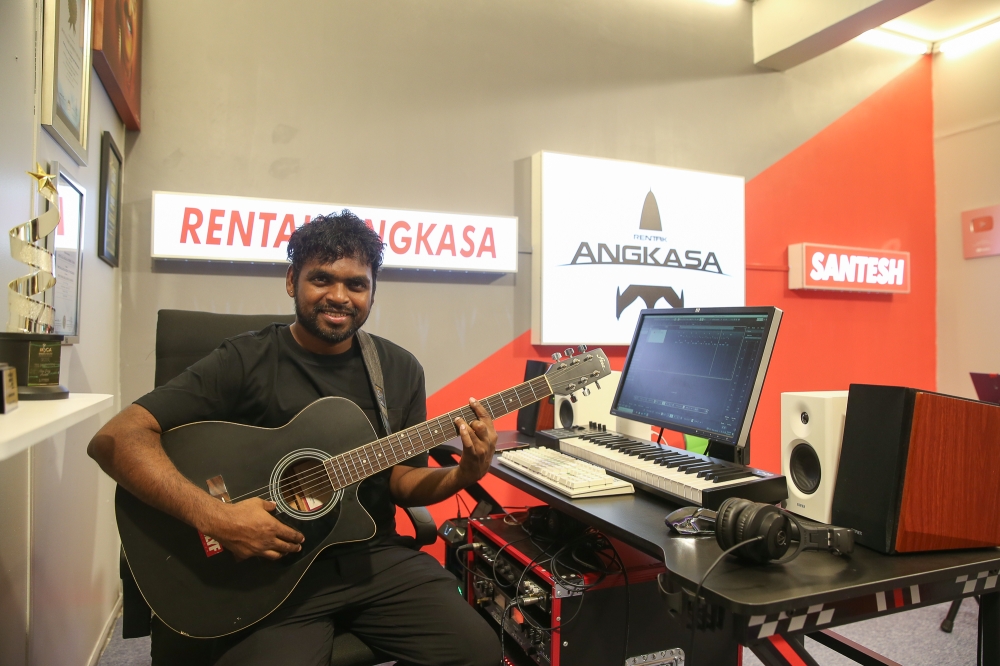KUALA LUMPUR, Sept 21 — When it comes to Tamil comedy with a Malay twist, one name tickles Malaysians’ funny bones — Shanthesh Kumar Sukumaran, better known as Santesh.
From factory worker to singer, Santesh’s journey took off with his 2017 hit Amalina.
The song’s Tamil music video hit a million views on YouTube within three days, earning him a spot in the Malaysia Book of Records for the fastest Tamil-language video to reach that milestone, while capturing the hearts of the Malay community.
When the Covid-19 pandemic disrupted the entertainment industry, Santesh shifted to comedy, translating popular Tamil comedies into Malay.
His comedy videos, averaging one million views each, helped him bridge cultural gaps and expand his fan base, further showcasing his cross-cultural appeal.
This unique approach distinguished Santesh from other local ethnic Indian entertainers, highlighting his versatility in both music and comedy.
The lightbulb moment
“A few years ago before Covid-19, I already had ideas. Those ideas were there to change Vadivelu’s Tamil comedy content to Malay. There are many Malays who love Tamil comedy so I wanted to do it.
“The challenge however, was to record and digitalise the whole thing by using apps and transferring to my mobile phone. When Covid-19 hit, I felt this was the right moment to do it,” Shantesh told Malay Mail in a recent interview.
Vadivelu is a prominent Indian comedian known for his work in Tamil cinema.
He earned global fame for his unique style of comedy, often characterised by pratfalls, misunderstandings, and exaggerated reactions, which contribute to his reputation as one of Tamil cinema’s most talented comedians.
His performances frequently combine slapstick elements with witty dialogues, making his comedy both visually entertaining and verbally clever.
This was what inspired Shantesh to translate the said content for a more diverse audience, as a way to lift people’s mood.
“During the Covid-19 period, there was no one to assist me. No friends or anyone, so I did multiple voices myself. Mimicry according to other characters in the original video, but translated into Malay.
“I had previously trained myself to speak like Rajinikanth, Kamal Haasan, the late Sivaji Ganesan and MG Ramachandran and it came in handy when I was mimicking Vadivelu, whereby I just add the tone and change the language into Malay and localise certain scenes to that in Malaysia,” Shantesh said, adding that his affinity for local yesteryear band Alleycats, also helped him in speaking fluent Malay.
He however clarified that the said clips which are published on his TikTok, Facebook and Instagram accounts, were never used to monetise, but instead as a means to put a smile on the face of Malaysians.
“That was and still remains the main intention. To unite us all through humour,” the father of one, added.

Fast gaining traction
One of Shantesh’s comedy dubbing videos was a collaboration with local personality Faradyable, featuring Tamil comedy content from the film Nagaram Marupakkam.
The comments section for this clip was buzzing with excited Malay social media users who praised the content for deepening their appreciation of Vadivelu.
“After the lockdown ended and people started going out to work again, I was also bogged with work and I thought that people may not pay heed to such content anymore, but to my surprise, I kept getting requests for more such videos,” Santesh added.
He then began dubbing Tamil songs into Malay, infusing them with his signature comedic flair. This new venture also became a major hit among social media users from all walks of life.
It was not easy, Santesh admits, saying that his creative journey is also peppered with harsh criticisms from social media users who struggled to understand his approach.
“Some told me the way I was presenting the Malay language was not right, and some of these people were teachers. They were concerned that I was presenting street-style spoken Malay which could contain errors.
“I explained to some that even if I presented my clips in formal Malay, it wouldn’t necessarily guarantee success. While some understood, others remained unconvinced,” Santesh added.
He said that to address the said criticisms, he rewatched the films of the late Tan Sri P. Ramlee to ensure he was presenting Malay and Tamil accurately.
To his relief and satisfaction, Santesh discovered that his presentation was nearly identical to the legendary artiste’s and warranted no criticism.
“You know the way he spoke in movies: ‘Eh pigi mana da? Marilah!’ This was exactly the tone and language I was using to produce the comedy clips, so I felt validated, motivated and continued working on them,” Shantesh added.

What’s next?
Santesh is currently working on dubbing the popular Tamil comedy film Imsai Arasan 23rd Pulikesi, which features Vadivelu in double roles.
He is translating the entire film into segments, adding his signature humorous twist to each scene, to entertain everyone.
This was after he had received many requests for such content. To date, he has already uploaded two parts to his social media platforms.
With a laugh, Shantesh shared, “You’ll see the highlighted segments on my Instagram and TikTok. I decided to take on a new challenge: dubbing an entire movie on my own!”
He also has hopes to remake scenes from various Tamil comedy films, for Malaysia’s national television stream.
However, for this purpose, financing is needed to buy the creative rights from movie producers.
“Aim is to remake the scenes. How? We copy selected scenes and translate them into Malay and use local artistes to play certain characters shown in the original clips. That is the idea,” he added.
Why Vadivelu mostly? Because he unites people by having them in stitches, Shantesh added.
Santesh also expressed hopes to inspire more non-Malay content creators to share their unique work and demonstrate Malaysia’s unity in diversity.
“Harmony has so much power. It can end so much negativity in the country. So please, create more good content and share.
“On top of that, do read lots of books. Quality content can only come from content creators who are well-read,” he added.






















